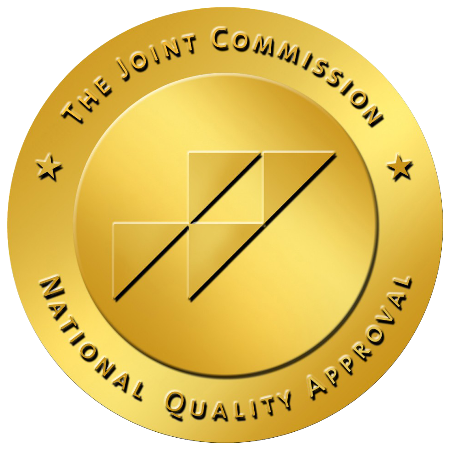Cocaine abuse is a severe public health issue in the United States, affecting a significant portion of the population. According to the National Survey on Drug Use and Health (NSDUH), approximately 4.8 million people aged 12 and older reported using cocaine in 2021.
This highly addictive stimulant snorted as a white powder or smoked crack cocaine, can have devastating effects on both physical and mental health. The impact of cocaine abuse extends beyond the person, affecting families and communities across the nation.
Cocaine Side Effects
Numerous side effects of cocaine use can impact nearly every system in the body. Common physical side effects include constricted blood vessels, dilated pupils, and increased body temperature. Users may also experience muscle tremors, nausea, and headaches.
Psychological effects can be just as severe, with many people experiencing anxiety, panic attacks, and hallucinations. Cocaine’s impact on the brain’s levels of dopamine can lead to intense cravings, contributing to the drug’s highly addictive nature.
In addition to these immediate side effects, regular cocaine use can lead to severe dental issues. The drug reduces saliva production, leading to dry mouth and increasing the risk of tooth decay and gum disease.
Bruxism is often caused by cocaine use. It leads to grinding and clenching of the teeth. This can damage the teeth and gums. As a result, it can cause more dental problems.
Frequent use of cocaine can also lead to more dangerous behaviors, such as reckless driving or engaging in risky sexual activities. These behaviors not only pose a threat to the user but also to others around them. Regular cocaine users may build a tolerance, needing larger amounts to feel the same effects as before. This escalation can further increase the risk of overdose and other serious health complications.

Long-Term Side Effects of Cocaine
Long-term cocaine abuse can cause a host of chronic health issues. One of the most concerning long-term effects is the potential for lasting damage to the heart. Cocaine use can lead to conditions such as arrhythmias, cardiomyopathy, and atherosclerosis, all of which increase the risk of heart attack. The drug’s impact on blood vessels can also result in high blood pressure, increasing the likelihood of stroke and other cardiovascular events.
Cocaine’s effect on mental health is equally troubling. Chronic users may experience depression, anxiety disorders, and an increased risk of developing psychosis. Long-term use can also impair cognitive functions like memory and decision-making abilities. Additionally, people who use cocaine may suffer from social and economic consequences, including job loss, financial instability, and strained relationships.
Another significant long-term side effect is the risk of developing a severe addiction. Cocaine addiction can lead to a cycle of compulsive drug-seeking behavior, often resulting in neglect of personal responsibilities and deteriorating quality of life. The physical health of people addicted to cocaine usually suffers as well, with poor nutrition and neglected medical care being common issues.
The neurological impact of long-term cocaine use is also profound. Chronic use can lead to changes in the brain’s structure and function, particularly in areas involved in the “reward system,” which controls motivation and decision-making. These changes can result in cognitive deficits, including impaired memory and attention, which can persist even after stopping the drug. Additionally, long-term users may experience emotional instability, irritability, and a decreased ability to experience pleasure, known as anhedonia.
Cocaine Withdrawal
Cocaine withdrawal can be a challenging and uncomfortable process, characterized by a range of physical and psychological symptoms. Unlike some substances, cocaine withdrawal is not typically associated with severe physical symptoms like nausea or seizures. Still, the psychological symptoms can be intense and distressing.
Common cocaine withdrawal symptoms include:
- Fatigue
- Depression
- Increased appetite
- Vivid, unpleasant dreams
- Irritability
- Mood swings
- Suicidal thoughts
The intensity of withdrawal symptoms often depends on the duration and frequency of cocaine abuse. Those who have used cocaine heavily and for a long period of time may experience more severe withdrawal symptoms. Quitting can be challenging because of strong cravings during withdrawal, making it tough for people to stop using the drug without help from professionals.
During withdrawal, people may feel anhedonia, which means they struggle to enjoy activities they used to find pleasurable. This can lead to addiction, as users might go back to cocaine to feel those enjoyable sensations again.
Another aspect of cocaine withdrawal is the potential for post-acute withdrawal syndrome (PAWS), where symptoms persist for weeks or even months after cessation of use. PAWS can include ongoing mood disturbances, cognitive impairments, and sleep disturbances. Long-lasting symptoms can make it hard to get better, as it may feel like progress is slow and discouraging.

Treatment for Cocaine Addiction at NATC
Overcoming cocaine addiction requires a comprehensive treatment approach. Treatments for cocaine addiction typically include a combination of behavioral therapies and support groups. Cognitive-behavioral therapy (CBT) is a common and effective treatment method that helps people recognize and change patterns of thought and behavior that contribute to drug use.
Inpatient rehabilitation centers can offer a structured environment for recovery, with medical supervision available to manage withdrawal symptoms.
At Northridge Addiction Treatment Center (NATC), our comprehensive inpatient treatment center provides evidence-based, compassionate care with onsite medical detox, medication-assisted treatment, and dual diagnosis to treat co-occurring mental health disorders.
Recovering from cocaine addiction is tough, but with help and treatment, you can stay sober and take back control of your life. At NATC, our caring and experienced team of professionals will help you through your recovery journey, providing support and motivation.
If you or someone you love is struggling with cocaine addiction, NATC can help. Our treatment specialists are eager to get you the proper treatment for your needs.
Contact us today.













